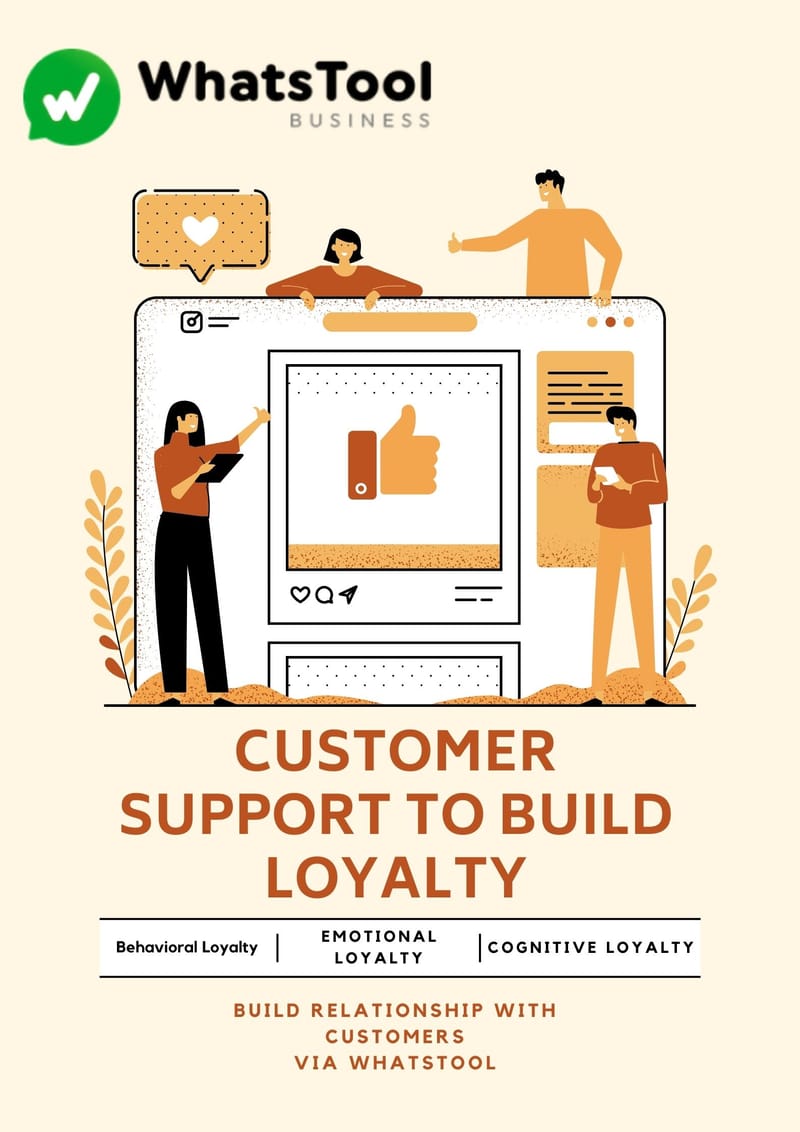Using Customer Support to Build Loyalty and a Competitive Advantage

Embracing robust customer support can be a transformative game changer for any business. Begin by investing in comprehensive training for your support team, ensuring they possess the skills and knowledge needed to handle a diverse range of customer inquiries. Implement a multi-channel approach, integrating live chat, email, phone, and social media platforms to cater to diverse customer preferences and enhance accessibility. Prioritize quick response times and resolution efficiency to demonstrate a commitment to customer satisfaction. Leverage customer data and feedback to identify pain points and proactively address issues before they escalate. Additionally, consider implementing self-service options, such as comprehensive FAQs or online tutorials, to empower customers to find solutions independently. Regularly gather insights from customer interactions to inform continuous improvement strategies and foster a customer-centric culture within your organization. By treating robust customer support as a strategic cornerstone, businesses can not only resolve issues effectively but also build trust, enhance brand loyalty, and ultimately gain a competitive edge in the market.
The 3 Types of Customer Loyalty
Customer loyalty is often conceptualized in three main types, reflecting different dimensions of customer commitment and engagement:
Behavioral Loyalty:
Behavioral loyalty is based on the customer's repeat purchasing behavior. In this type of loyalty, customers consistently choose a particular brand or product over time. This loyalty is transactional and observable through customer actions, such as repeat purchases or a regular frequency of engagement. Behavioral loyalty is often influenced by factors like convenience, habit, or satisfaction with the product or service. While customers may not necessarily have a strong emotional connection, they exhibit loyalty through their consistent buying patterns.Emotional Loyalty:
Emotional loyalty is characterized by the customer's emotional connection and positive feelings toward a brand. This type of loyalty goes beyond mere transactions and is rooted in the customer's experiences, perceptions, and emotional attachment to the brand. Customers with emotional loyalty are not only satisfied with the product or service but also feel a sense of trust, belonging, and alignment with the brand's values. They are more forgiving of occasional shortcomings and are likely to become brand advocates, actively recommending the brand to others.Cognitive Loyalty:
Cognitive loyalty is based on the customer's rational evaluation of a brand. In this type of loyalty, customers make a conscious, reasoned decision to remain loyal to a brand. This decision is often influenced by perceived product quality, brand reputation, unique features, or a positive perception of the overall brand. Customers with cognitive loyalty may actively compare alternatives in the market but consistently choose a particular brand based on their logical assessment of its merits.

Businesses aim to understand and leverage these three types of customer loyalty to create comprehensive strategies that address both emotional and practical aspects of customer commitment. While behavioral loyalty focuses on encouraging repeat transactions, emotional loyalty emphasizes building strong customer relationships, and cognitive loyalty involves strategic brand positioning and differentiation to appeal to customers' rational decision-making. A well-rounded approach considers and nurtures all three types of loyalty, recognizing the multifaceted nature of customer relationships in today's dynamic marketplace.
Differentiating your business with Customer Support
Differentiating your business through customer support based on the three types of customer loyalty involves tailoring your approach to meet the diverse needs of customers. Here's a guide for each type:
Behavioral Loyalty:
- Streamlined Transactions: For customers exhibiting behavioral loyalty, focus on providing efficient and streamlined transactional experiences. Optimize your customer support for quick issue resolution, easy order processes, and seamless transactions to encourage repeat business.
- Customized Recommendations: Leverage data from past transactions to offer personalized product recommendations, demonstrating that you understand their preferences and are committed to enhancing their purchasing experience.
Emotional Loyalty:
- Empathetic Communication: Build emotional loyalty by fostering empathetic and personalized communication in customer support interactions. Train your support team to connect with customers on a deeper level, expressing understanding and care for their concerns.
- Surprise and Delight: Implement surprise elements in your customer support, such as unexpected discounts, personalized thank-you note, or exclusive access to events. These gestures go beyond meeting expectations and create positive emotional connections.
Cognitive Loyalty:
- Expert Consultation: Cater to customers driven by cognitive loyalty by offering expert consultation services. Ensure that your customer support team is knowledgeable about your products or services, providing insightful information and guidance to help customers make informed decisions.
- Educational Resources: Provide educational resources and content that align with the rational decision-making process. This can include in-depth product guides, comparison charts, and informative articles that support customers in their logical evaluations.
In all cases:
- Consistent Brand Experience: Maintain a consistent brand experience across all customer support interactions. Whether addressing behavioral, emotional, or cognitive loyalty, consistency reinforces your brand identity and strengthens customer recognition.
- Feedback Integration: Actively seek customer feedback to understand their evolving needs and perceptions. Use this feedback to continuously refine and improve your customer support strategies, ensuring alignment with the expectations of each loyalty type.
- Recognition and Rewards: Acknowledge and reward customer loyalty across all three types. Implement loyalty programs that recognize both transactional and emotional contributions, creating a comprehensive approach to customer appreciation.
By tailoring your customer support strategies to the specific characteristics of each type of customer loyalty, you can create a more nuanced and effective differentiation strategy that resonates with diverse customer segments.
Comments
Your comment has been submitted